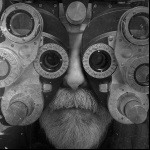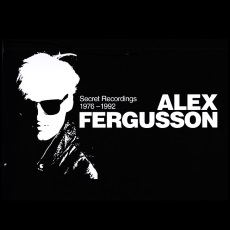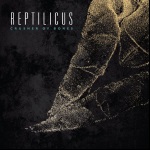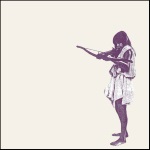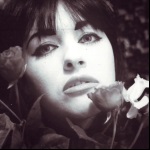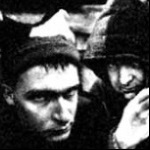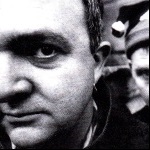|
Psychic TV - A Prayer For Derek Jarman 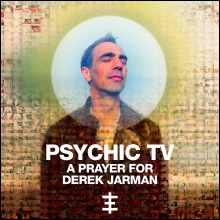 A Prayer For Derek Jarman compiles the soundtracks composed by Psychic TV to accompany the videos and films of Derek Jarman. Derek Jarman and Genesis P-Orridge shared a long-lasting friendship. According to the liner notes, P-Orridge first met Jarman in the late 1960s through their involvement in the performance art collective The Exploding Galaxy. However, in a 1981 interview with Akiko Hada, Jarman recalled meeting Genesis a year earlier, which led to their friendship and his first collaboration with Throbbing Gristle.
A Prayer For Derek Jarman compiles the soundtracks composed by Psychic TV to accompany the videos and films of Derek Jarman. Derek Jarman and Genesis P-Orridge shared a long-lasting friendship. According to the liner notes, P-Orridge first met Jarman in the late 1960s through their involvement in the performance art collective The Exploding Galaxy. However, in a 1981 interview with Akiko Hada, Jarman recalled meeting Genesis a year earlier, which led to their friendship and his first collaboration with Throbbing Gristle. Throbbing Gristle went on to provide the soundtrack for Jarman's In the Shadow of the Sun, while Jarman's short film Psychic Rally in Heaven documented a live Throbbing Gristle performance. From the earliest days, Derek Jarman was a recurring presence in the work of Psychic TV. He appeared as Thee Temple spokesperson (mouthing the words of Mr. Sebastian) in the video for 'Message from The Temple', and collaborated with Psychic TV on the Mantis Dance Company ballet Mouth of the Night. He also directed the 'Catalan' video as part of a commission for Spanish television. Jarman later became entangled in the Dispatches controversy, when a UK television documentary falsely accused Psychic TV and Thee Temple Ov Psychick Youth (TOPY) of involvement in ritual "satanic" abuse. This deliberate witch-hunt ultimately forced the P-Orridge family into self-imposed exile for several years. Much of A Prayer For Derek Jarman is based on Psychic TV's Themes 2, which was composed to accompany Home Movies - a series of Super 8 films by Derek Jarman that was intended for release on video cassette through the TOPY mailing list in 1985. In a review of James Mackay's Derek Jarman Super 8 P-Orridge notes that Home Movies included a mix of Sloane Square, B2 Movie and other films. The first two tracks return to the original vinyl release of Themes 2, featuring a Psychic TV lineup of John Gosling, Alex Fergusson, and Genesis and Paula P-Orridge. 'The Loops of Mystical Union' is an extended reworking of 'Themes 2, Part One', based on a looped extract from Alexander Scriabin's Poem of Ecstasy. Here, the elongated drone, mixed with washes of dissonance, acts like a static blur, continually looping back on itself and compelling the listener to impose meaning on the unceasing peak experience being conveyed. 'Elipse of Flowers' - essentially 'Themes 2, Part Two' - accompanied scenes of late-1960s Swinging London garden parties, filmed by Jarman on his Super 8 camera. The (just) drifting sounds of Alex Fergusson's melancholic, Velvets-esque guitar playing float over soft chimes, ending with a bout of giggling. According to the liner notes, 'Mylar Breeze' was recorded to accompany footage of a ripped piece of silver mylar snagged on a branch of driftwood, glistening in the sunlight. The evocative piano score - layered with both distant and close piano tones - is, in fact, 'Mirrors' from the Unclean 12-inch. Interestingly, Tony Peake, in his exhaustive biography of Derek Jarman, lists this Super 8 footage as being shot during the making of Jarman's gay epic Sebastiane, with alternate titles including Sebastiane Wrap, Sebastiane Mirror Film, or simply Mirrors. Originally conceived with Derek as a triptych, the film was finally completed in 1993 as an extended piece. It featured the addition of 'Mylar Breeze Part 2 and 3', using the unlisted second version of 'Unclean' - now known as 'Unclean Monks' - which includes Genesis's vocals delivered as gothic chants, along with a reprise of 'Mirrors', all added during archival remastering sessions with Larry Thrasher. Even in this expanded and modified form, it remains an evocative and moving track. Composed by Genesis P-Orridge and Larry Thrasher in 1993, 'Prayer for Derek' is intended as an invocationary prayer, inspired by Tibetan rituals that Genesis had witnessed and participated in while in the Himalayas. The track is a sound collage that begins with the lulling waves breaking on the shingle beach opposite Jarman's Prospect Cottage in Dungeness, Kent, accompanied by birdsong. As it progresses, the piece incorporates crying babies and massed ritualised chants, all intended to aid the late film director on his journey through the afterlife. The final piece, 'Rites of Reversal', features the familiar snarling dogs (or are they angry wolves?) that appeared on Dreams Less Sweet - or perhaps it was 'Thee Full Pack' - mixed with low, buzzing electronics. I originally (mistakenly) attributed this track to Pirate Tape, which features footage of William Burroughs filmed by Jarman during Burroughs' visit to London for The Final Academy event in 1982. That event, curated by David Dawson, Roger Ely, and Genesis P-Orridge, included appearances by Brion Gysin, John Giorno, 23 Skidoo, Cabaret Voltaire, and Last Few Days, and marked the first-ever performance by Psychic TV. The soundtrack to Pirate Tape was later released as part of a Vinyl On Demand Psychic TV box set and as a limited one-sided 12-inch on Cold Spring. It would have made a wonderful addition to this collection. So what is 'Rites of Reversal'? According to the liner notes, it is a "tonal theme intended for a film by Genesis P-Orridge of William S. Burroughs, for which Derek Jarman was the camera person." In Naked Lens: Beat Cinema by Jack Sargeant Genesis P-Orridge states, "I literally hired Jarman as my camera person for the whole period of The Final Academy." All the footage Jarman captured - at events, dinners, and on Tottenham Court Road - was, according to P-Orridge, filmed under the "strict understanding" that it belonged to him for a film he intended to construct. This tonal theme is perhaps the intended soundtrack to that unfinished film. A film matching this description was reportedly among the many items confiscated during a raid on the P-Orridge residence in Brighton by Scotland Yard's Obscene Publications Squad. I'm always a bit dubious about the lack of performer credits on Psychic TV reissues - only Genesis P-Orridge and John Gosling from the original group are listed here, alongside Larry Thrasher. But if you can get past that, A Prayer For Derek Jarman is a fantastic release. Long unavailable as a standalone release, it's now remastered and repackaged with new artwork. This collection serves as both a valuable document of Psychic TV's soundtrack work and a fitting tribute to the late film director. It's also a timely reminder of the enduring collaborative relationship between two artists who consistently pushed boundaries in the realms of sexuality, art, music, and film. A Prayer For Derek Jarman is available on CD from Cold Spring and digitally from Cold Spring bandcamp Sources: Derek Jarman Super8 - James Mackay Derek Jarman - Tony Peake Naked Lens: Beat Cinema - Jack Sargeant Akiko Hada - Derek Jarman interview, 1981 Bomb Magazine Psychic TV - A Prayer For Derek Jarman |
|
|||||||||
| Copyright © | ||||||||||


